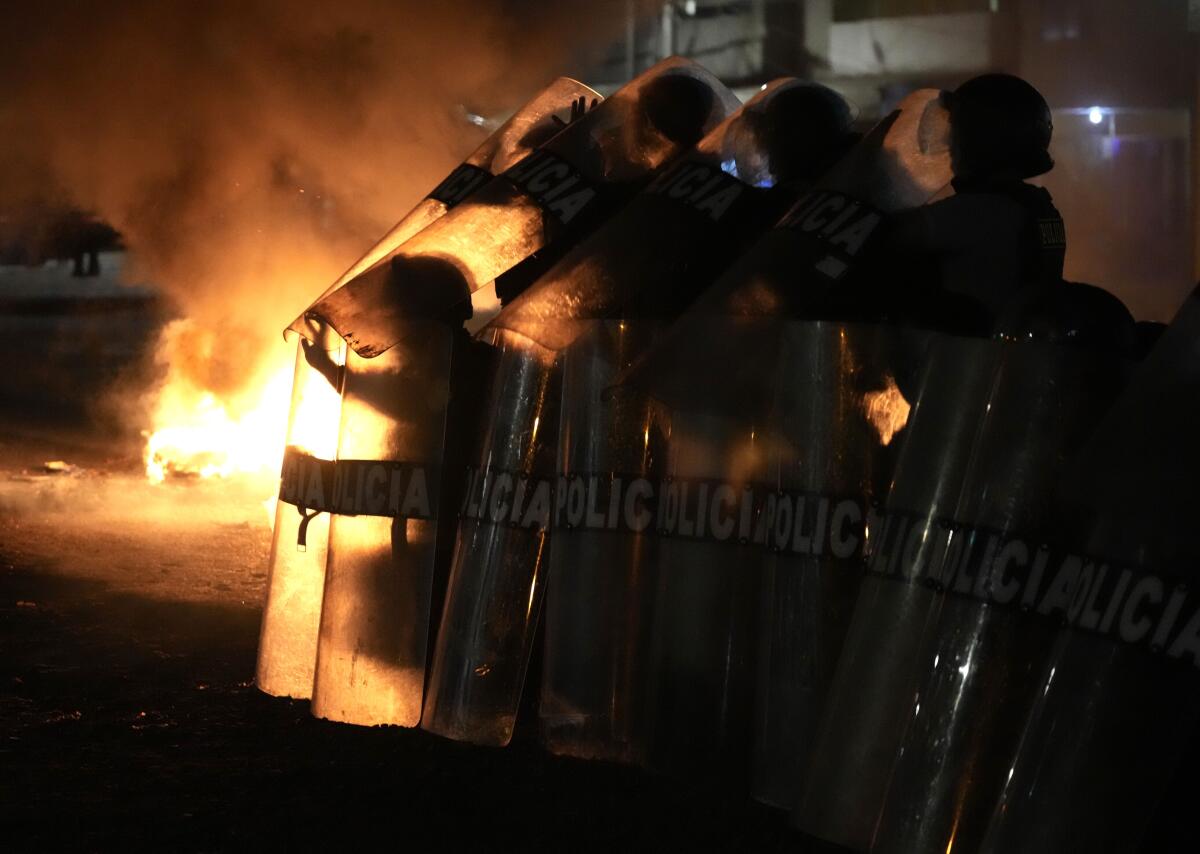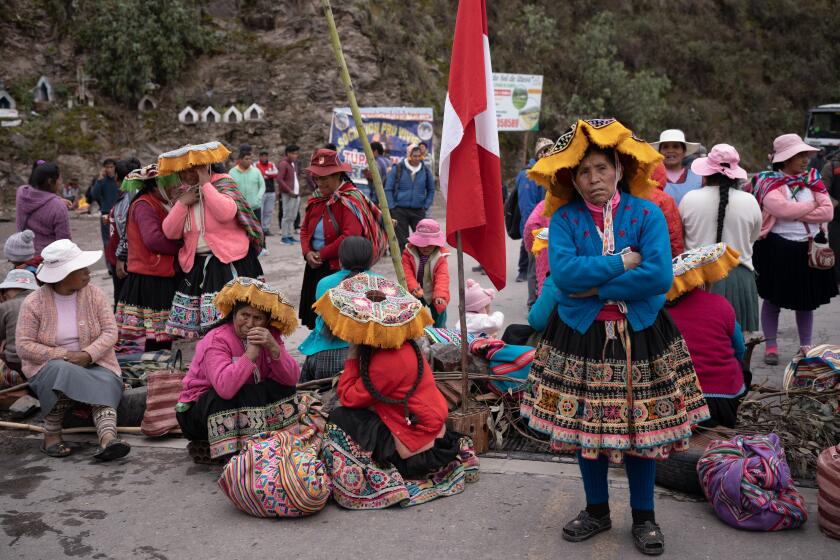Rights panel says Peru used excessive force to quell anti-government protests

- Share via
LIMA, Peru — The Inter-American Commission on Human Rights said that Peru’s military and police forces used excessive force to quell violent anti-government protests and that they should be investigated as possible extrajudicial executions and massacres.
The commission, an autonomous arm of the Organization of American States, said Wednesday that the violations took place in several regions across Peru but centered its investigation on the cities of Ayacucho and Juliaca.
Those cities saw the largest number of deaths during the protests from December through February demanding the resignation of President Dina Boluarte and members of Congress.
Among the violence detailed in the commission report was a fatal clash in Ayacucho on Dec. 15, when soldiers fired rifles at demonstrators who were trying to enter the airport, killing 10 civilians. The commission said it reviewed testimonies indicating that soldiers also fired shots outside the airport, hitting bystanders and people who were fleeing the confrontations.
The report also found that 18 civilians died on Jan. 9 in Juliaca, including protesters, a brigade doctor and a teenage bystander. All of the victims died from bullets, pellets and blunt objects, according to the report.
The protests were carried out for the most part by Indigenous Peruvians and peasant communities, mainly from the southern regions of Apurimac, Ayacucho, Puno and Arequipa, which saw the highest number of victims.
Protest in Peru aimed at removing the president has become a rebellion of the Indigenous and poor, pushing for broad political, economic and social changes.
The commission said the killings of protesters may have been extrajudicial executions and massacres and should be investigated “with due diligence and with an ethnic-racial focus.”
Monitoring the crisis in Peru, it concludes, requires “broad, genuine, and inclusive talks with an intercultural and territorial focus, where all the different groups in society are adequately represented.”
The unrest began in early December after the arrest of Pedro Castillo, Peru’s first president from a rural peasant background, following his widely condemned attempt to dissolve Congress and head off its efforts to impeach him.
Protesters, mainly in neglected rural areas of the country still loyal to Castillo, have sought immediate elections, Boluarte’s resignation, Castillo’s release and justice for those killed in clashes with police.
More to Read
Sign up for Essential California
The most important California stories and recommendations in your inbox every morning.
You may occasionally receive promotional content from the Los Angeles Times.













